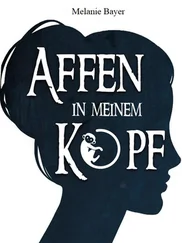William Bayer - Tangier
Здесь есть возможность читать онлайн «William Bayer - Tangier» весь текст электронной книги совершенно бесплатно (целиком полную версию без сокращений). В некоторых случаях можно слушать аудио, скачать через торрент в формате fb2 и присутствует краткое содержание. Жанр: Криминальный детектив, на английском языке. Описание произведения, (предисловие) а так же отзывы посетителей доступны на портале библиотеки ЛибКат.
- Название:Tangier
- Автор:
- Жанр:
- Год:неизвестен
- ISBN:нет данных
- Рейтинг книги:5 / 5. Голосов: 1
-
Избранное:Добавить в избранное
- Отзывы:
-
Ваша оценка:
- 100
- 1
- 2
- 3
- 4
- 5
Tangier: краткое содержание, описание и аннотация
Предлагаем к чтению аннотацию, описание, краткое содержание или предисловие (зависит от того, что написал сам автор книги «Tangier»). Если вы не нашли необходимую информацию о книге — напишите в комментариях, мы постараемся отыскать её.
Tangier — читать онлайн бесплатно полную книгу (весь текст) целиком
Ниже представлен текст книги, разбитый по страницам. Система сохранения места последней прочитанной страницы, позволяет с удобством читать онлайн бесплатно книгу «Tangier», без необходимости каждый раз заново искать на чём Вы остановились. Поставьте закладку, и сможете в любой момент перейти на страницу, на которой закончили чтение.
Интервал:
Закладка:
"He's been very busy, I think."
"Good. I was worried he'd forgotten us. It happens so often when people leave Dradeb."
"He's working all the time," she said. "Sometimes he doesn't even sleep. When he thinks I've fallen off he slips out to the other room. Then he sits in the dark smoking cigarettes."
"Thinking about something?"
"That's what he says. But he doesn't talk about his work. I think he's healthy, though. Otherwise he'd come to you."
Achar laughed. "Oh, Kalinka. Hamid can come here anytime, whether he's sick or not. I've known him all my life. We were born within a hundred meters of this place."
She nodded, and as always Achar felt a certain strangeness in her manner, a retreating inside, a distancing from events.
"Now what brings you here, Kalinka? Your spring cold's all gone, I think."
"I don't know," she said. "Sometimes I feel weak. My chest hurts. I'm tired all the time."
"Well, I'll have a look at you. Come on then. Take off your dress."
She looked up at him and hesitated. He excused himself to fetch his stethoscope, and when he returned he found her sitting on the examination table in white silk trousers and brassiere. Her dress, an Oriental floral print, was hanging from the hook. He looked at her carefully-her skin was pale and so translucent he felt he could see deep within, even past the network of blue veins.
"You're so very thin, Kalinka. Perhaps you don't eat enough."
She shook her head. "I'm not very hungry," she said.
He began to examine her, listen to her heart, then thump his forefinger on her chest and back. She seemed fragile to him, perfectly proportioned and yet petite, her rib bones so delicate he felt they'd break if he touched too hard. It seemed improper for him to lay his thick, hairy fingers on such a fragile creature, and yet, thinking that, he suddenly understood her attraction for Hamid.
When he was finished with her torso he stared down her throat and then, with his magnifying flashlight, deep into her eyes. The whites were a little jaundiced, he thought. Bent over, so close to her face, he felt suddenly that his head was twice as big as hers.
"You still smoke, Kalinka?"
She nodded and looked down.
"I told you last time you'd have to stop."
"I try," she said in her funny sing-song French. "But there is nothing else for me to do."
"Don't be ridiculous. Tangier is full of things. You like to draw. Why don't you do that?"
She shrugged.
"Learn Arabic then. It's the least you can do."
"Hamid is unhappy with me." She blurted out the words so quickly they caught him off his guard. Then, immediately, she raised her hand to cover up her mouth.
He sat back, looked at her, thought a few moments, then spoke. "Why, Kalinka? Why is he unhappy? What makes you think he is? Tell me what's wrong."
"I don't know," she said, shaking her head. "Sometimes he looks at me so strangely, and I feel he's about to speak. Then he turns away. He questions me. I try to answer but I can't. He asks me to draw pictures and tell him stories. I try my best but he's not satisfied." There were tears forming in her eyes.
"You're not unhappy with him?"
"Oh, no! I love him. He's the only thing I care about here."
"What are these questions? What does he want to know?"
"Everything. He wants to know about the past. About Peter and Hanoi. My life. He asks me questions about my life."
"Surely you can answer him."
"No," she said. "I try. But I cannot. It's all so vague to me. Like a dream."
He didn't know what to say. Here was a woman who lived with his boyhood friend, a strange Asian woman who said her past had fled her memory. It was hard enough to be a doctor, to diagnose illnesses, to examine the exteriors of patients and from them divine the processes beneath. But to diagnose a woman's heart-that was beyond his skill.
"You must stop smoking. I insist on that. The hashish makes everybody mad. It's an opiate here-the fog in which Moroccans sleep. People who smoke it turn inward, confused, and can no longer see the world. It's very bad for you. It makes you dream. It dulls your senses. It clouds your sight. You must give it up, Kalinka-right now, right away. Take walks. Grow plants on your balcony. Draw pictures. Listen to music. But stop smoking. That's why your chest aches. That's why you feel weak, tired all the time. It's the hashish that has made you forget."
He was surprised at the force with which he delivered his little speech-it was not like him to lecture a patient that way. He thought back upon what he knew of her life-her reputation as a femme fatale. This tiny creature had broken the spirit of the Russian, then ensnared Hamid. Achar did not believe the talk about her casting spells, but when Hamid had fallen in love with her he'd acted like a fool. What was it about her? What was the source of her power? He looked at her carefully again and for a moment, a splinter of a second, saw something that made him feel weak. It was something ancient, veiled-a whole history that showed on the smooth, blank features of her face. It was as if all the mystery of the Far East showed there, all the centuries of struggle and bloodshed, strange rites, formal rituals, something placid, hieratic, deep. It was so compelling that, for a minute, he could not tear his eyes away. But finally she grinned and broke the spell.
"Yes," she said, "the hashish. I will try. I promise I will try to stop."
At twilight Achar went out to walk. It had been a busy day at the clinic, and still there were people waiting to be helped. But he needed to breathe, to get out of those narrow rooms, to feel the cool air that rolled across the valley from the sea. The taps were not yet turned on, but children were waiting near the pumps. Dradeb was a beehive, pulsing with misery and life.
Most of its houses were constructed out of discarded bricks mortared in haphazard ways. The roofs were sheet metal, kept in place by stones on top; otherwise, when the wind blew the roofs might fly away. There were large portions of Dradeb where the houses were not so good, shacks made of discarded pieces of cars and bamboo culms with only a blanket for a door. There were shanties that had been erected on top of an old Jewish cemetery-the gravestones, poking up in the middle of the rooms, served as tables or even beds. Such rot , he thought, such a rotting place . Dradeb stank of over-flowing septics. Its little lanes were filled with rubble and discarded blackened greens.
Achar thought of Fischer then, walking these alleys with Driss Bennani months before, such an improbable combination, he'd thought so many times, the young Moroccan with the old American Jew. He'd liked Fischer, missed him, was sorry now that he was dead. The man had been a builder and a dreamer. Now Driss wanted to tear things down.
Achar passed a carpentry shop, waved to the men inside. Walking up an alley by the mosque, he could hear the machine in the miller's shop grinding flour out of wheat. He walked up Rue de Persil, moving to the side to avoid a rat. It lay dead in ooze that trickled down from an outhouse. There were dogs standing in the alleyway, thin, bony mongrels with supplicating eyes. A week or so before, the police had come while men demolished shanties that encroached on private land. Then the trucks took people and their possessions to another quarter, and the uncomprehending dogs were left behind. They seemed to Achar to be getting thinner every day. Soon they must find a source of garbage , he thought, or else they will become savages or die .
Finally, at the top of the hill, he turned and looked back down. There it was, Dradeb, the slum, and his clinic, a compound of shanties too. The place needed schools, water, most of all a passion to change. Only yards away, across the river on the Mountain, one could buy Cuban cigars and English marmalade.
Читать дальшеИнтервал:
Закладка:
Похожие книги на «Tangier»
Представляем Вашему вниманию похожие книги на «Tangier» списком для выбора. Мы отобрали схожую по названию и смыслу литературу в надежде предоставить читателям больше вариантов отыскать новые, интересные, ещё непрочитанные произведения.
Обсуждение, отзывы о книге «Tangier» и просто собственные мнения читателей. Оставьте ваши комментарии, напишите, что Вы думаете о произведении, его смысле или главных героях. Укажите что конкретно понравилось, а что нет, и почему Вы так считаете.












